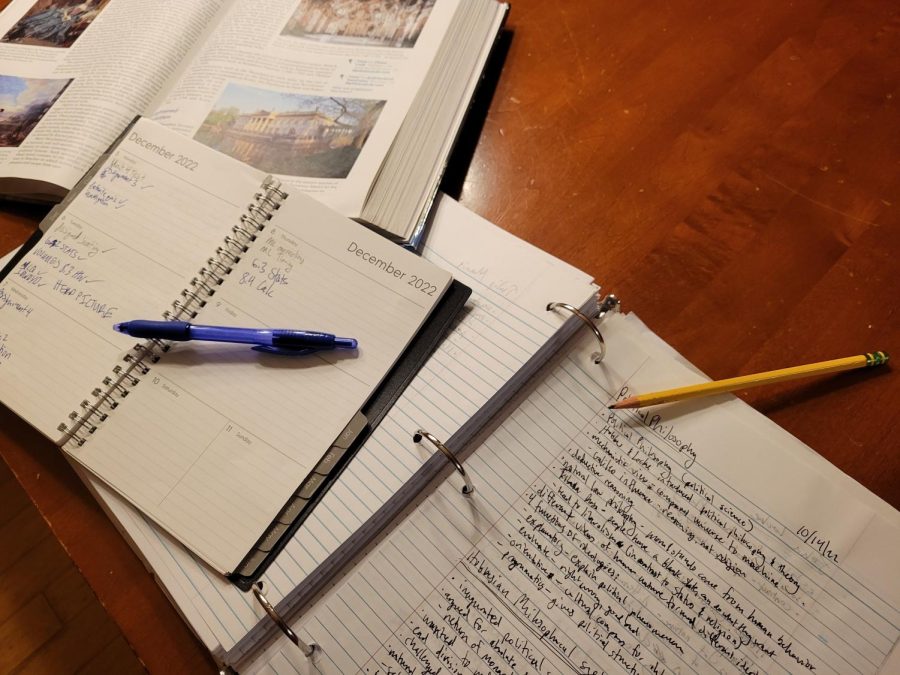Junior Year Dread
When people think of the glories of high school, junior year usually comes to mind. Eleventh grade has become a time of rigorous work for many, the peak of their high school years. If you are an underclassman looking ahead to your junior year, the bombardment of warnings can be quite intimidating, especially if you plan to take an advanced curriculum. While these stories of late nights and stress hold some truth, exaggeration can often distort the real experience. When approached well, junior year can challenge you in a developmental, but not overwhelming way, allowing you to explore new opportunities.
In order to best understand these challenges, we must break down society’s expectations placed on advanced high school students. What is expected of students now certainly differs from previous decades. Sharon Williams, a 1992 Marshwood High School graduate, explains, “When I was in high school, there were only two AP classes: Calculus 1 and English. These were only offered to seniors, and not many could meet the challenge.” This perspective reveals a clear change over time: where Maine students around 1990 could only take a maximum of about two AP classes, advanced students today are likely taking three, four, or even five of the many AP classes offered. Society has evidently heightened their expectations, and high school students today find themselves needing to meet them in order to stay competitive within their class and in the eyes of colleges. This may indeed seem intimidating, but I assure these expectations are reasonable and achievable. Regardless of the intimidation from society’s expectations, it is more valuable to explore the real experiences of those who have lived the course load. Flynn Crean, a senior at Kennebunk High School, agrees with the societal consensus: “For students who want to go far, it’s hard to manage the work.” Flynn affirms that an advanced curriculum within junior year will increase your workload. Dylan Hurley, another KHS senior, also mentions the pressures of GPA and how it influences college acceptance.
As well as an increase in academic work, responsibilities of a junior include introducing the task of finding balance. Andrew Keene, a KHS graduate of 2022, speaks for many in saying “I think junior year was probably the hardest for me to balance school, work, sports, and hanging out with my friends.” Flynn Crean also expresses that “you have to sacrifice something: grades, sleep, or something else.” These examples highlight the importance of prioritizing certain values and activities in life because others will have to be sacrificed. These are realistic perspectives that may seem intimidating or even disappointing. They are vital, however, to properly plan for junior year. If you learn from the experience of others, you will be all the more prepared. Keeping in mind your capabilities, you can schedule a challenging year that leaves time for your main priorities.
Attacking hurdles positively and constructively will allow you to develop academic skills and succeed. When speaking about his junior year, Evan Bechtold, a 2020 graduate from Webster Thomas High School, expresses how he “took learning more seriously” and also mentions “junior year was actually [his] highest GPA.” Evan is a great example of a student who faced his junior year motivated and with a constructive attitude. By working on his efficiency and productivity, he was more successful in the classroom than before. Let this be a model to those of you who may be fearing your junior year. Despite the challenge of heavy courses and balancing activities, you can still find ways to better yourself and succeed.
While people express that junior year can be difficult and unenjoyable, this is only as true as you make it. There are plenty of examples of people succeeding in their junior year due to a constructive outlook. If you are approaching your junior year, I ask you to accept the challenge. You should of course be mindful of your capabilities and limits, but find ways to accomplish more and push a little farther. Improve your time management, practice working efficiently, and discover how your mind learns most effectively. These are ways to achieve more and grow as a student during your junior year. In this way, it is an opportunity. Make it your year.

